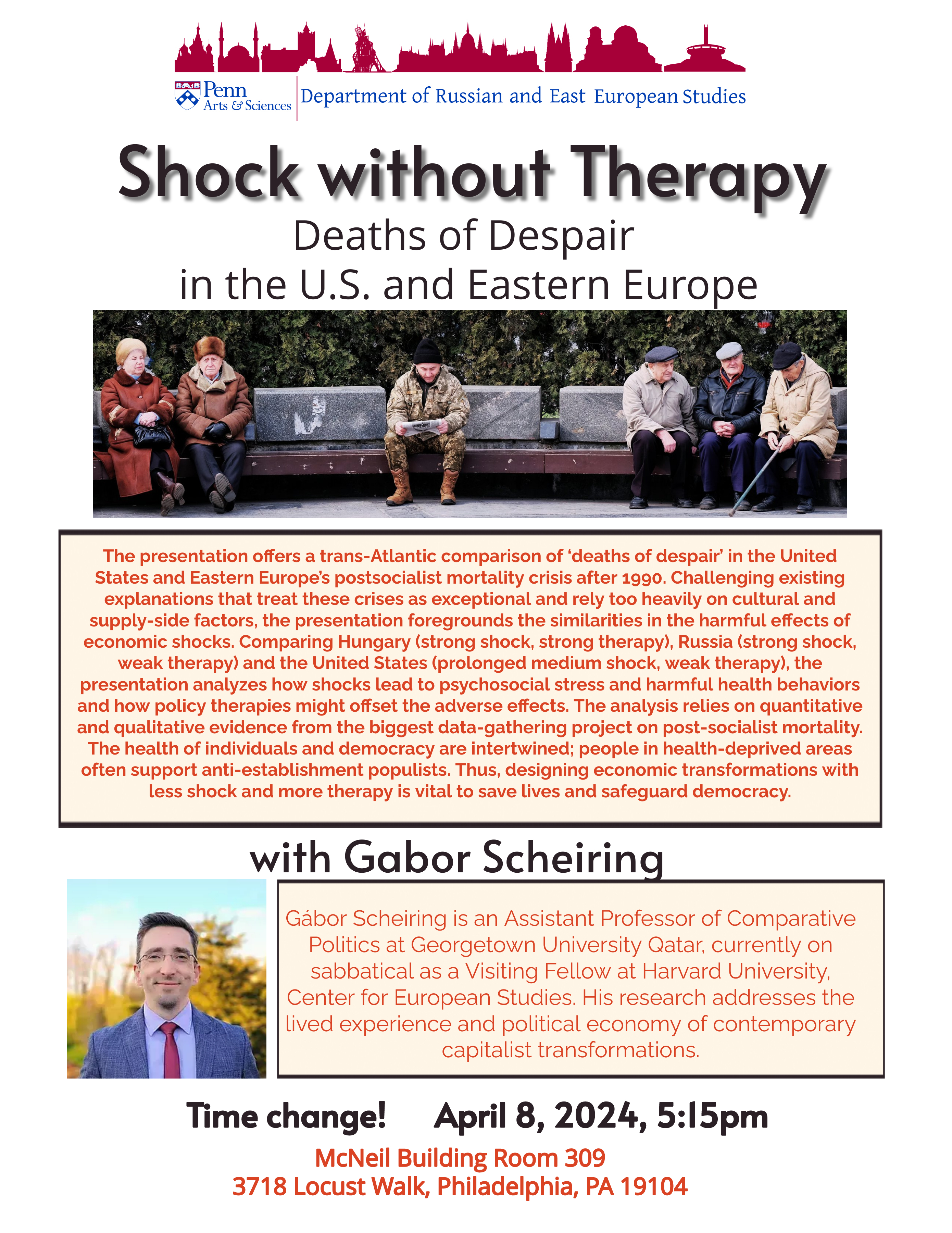
with Gábor Scheiring
Monday, April 8, 2024 - 5:15pm
McNeil Building Room 309
The presentation offers a trans-Atlantic comparison of ‘deaths of despair’ in the United States and Eastern Europe’s postsocialist mortality crisis after 1990. Challenging existing explanations that treat these crises as exceptional and rely too heavily on cultural and supply-side factors, the presentation foregrounds the similarities in the harmful effects of economic shocks. Comparing Hungary (strong shock, strong therapy), Russia (strong shock, weak therapy) and the United States (prolonged medium shock, weak therapy), the presentation analyzes how shocks lead to psychosocial stress and harmful health behaviors and how policy therapies might offset the adverse effects. The analysis relies on quantitative and qualitative evidence from the biggest data-gathering project on post-socialist mortality. The health of individuals and democracy are intertwined; people in health-deprived areas often support anti-establishment populists. Thus, designing economic transformations with less shock and more therapy is vital to save lives and safeguard democracy.
Gábor Scheiring is an Assistant Professor of Comparative Politics at Georgetown University Qatar, currently on sabbatical as a Visiting Fellow at Harvard University, Center for European Studies. His research addresses the lived experience and political economy of contemporary capitalist transformations. Specifically, he analyses how economic shocks fuel inequalities in health and well-being and how these inequalities affect the power dynamics and changing social coalitions underlying political-economic regimes. His book, The Retreat of Liberal Democracy (Palgrave, 2020), winner of the BASEES 2021 Book Award, shows how working-class dislocation and business elite co-optation enable illiberalism in Hungary. His articles on economic shocks and well-being show how privatization and deindustrialization amplify mental and physical suffering, undermining support for liberal democracy. His work has appeared in leading journals such as The Lancet Global Health, Socio-Economic Review, Theory and Society, Cambridge Journal of Economics, and the Annual Review of Sociology. As a member of the Hungarian Parliament (2010-2014), he advocated for a socially just transition to sustainability.
 Russian and East European Studies
Russian and East European Studies